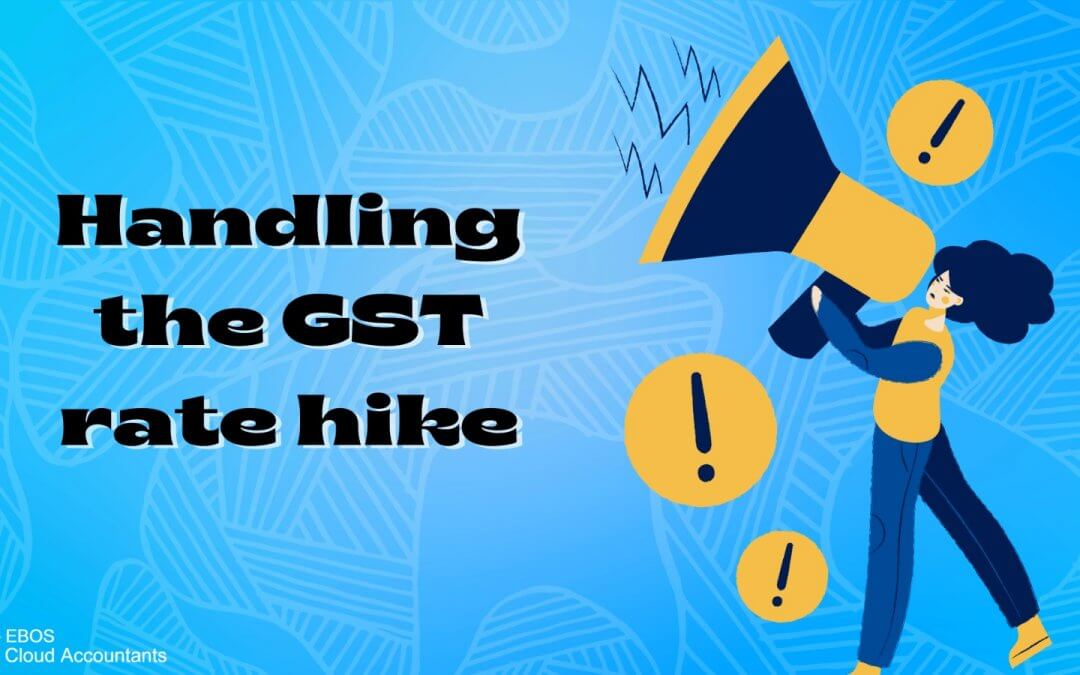This article offers some helpful advice on how businesses should prepare themselves in particular for the first rate rise in Singapore’s GST, which will take effect on the first day of the next year, in advance of the anticipated two-step GST rate hike. The majority of GST-registered businesses are able to recoup the GST they paid on their expenses, thus an increase in the GST rate shouldn’t have a noticeable effect on prices. Cash flow costs and compliance costs must also be taken into account. To lessen the impact of the import GST on cash flow, GST-registered businesses with sizable imports may want to apply for import GST relief programs including the Major Exporter Scheme, Approved Contract Manufacturers and Traders Scheme, and Import GST Deferment Scheme.
Although firms with GST registrations must report GST at the new rate to IRAS following the GST rate increase, this does not necessarily entail that more GST needs to be collected from customers. Your customer’s pricing are subject to a private agreement. Therefore, you should take into account the price sensitivity of your items and the character of your customers when developing your pricing plan, particularly if they are not GST registered and unable to recoup the GST charged. Your choice of whether or not to absorb the GST rate increase will then be influenced by this. Such pricing tactics will hurt your bottom line if you decide to absorb the entire GST cost (as in “GST absorbed” advertising campaigns) or just the GST rate increase.
Updates to price displays are one of the crucial things GST-registered firms should do in advance of the GST hike. All of their price displays, including as price lists, price tags, websites, advertising, and publicity brochures, must include GST-inclusive prices. Given that consumers have a right to advance knowledge of the total amount they will be required to pay, all quoted prices, whether they are given in writing or verbally, must include GST. To avoid fines, firms must adhere to the guidelines and specifications established by IRAS and accurately account for GST in their GST returns. Businesses need to develop an implementation plan in collaboration with their system vendors and internal IT team to ensure the seamless execution of the changes in order to prepare for the rate change and apply the transitional rules. This can entail changing your point-of-sale, bookkeeping, and other systems. Furthermore, since making GST mistakes is predicted to become much more expensive once the GST rate hike kicks in, you should already have adequate, robust, and effective GST preventative and investigative controls in place to enable better management of GST risks.
The GST rate hike has finally arrived after years of preparation and expectation. This rise is anticipated to satisfy the urgent need for the government to increase income while also realizing the need for individuals and companies to plan ahead and mitigate the impact of the increase. Along with GST compliance, we also provide a range of other services aimed at streamlining the operations of your company, including valuation services, transfer pricing services, and local and international tax planning. We also provide employee shares option plans in Singapore to enable firms take advantage of tax deduction benefits. For additional details, contact us to request a trial or to chat in our chat box. If you have questions about our dependable services, don’t hesitate to get in touch with us right away.







